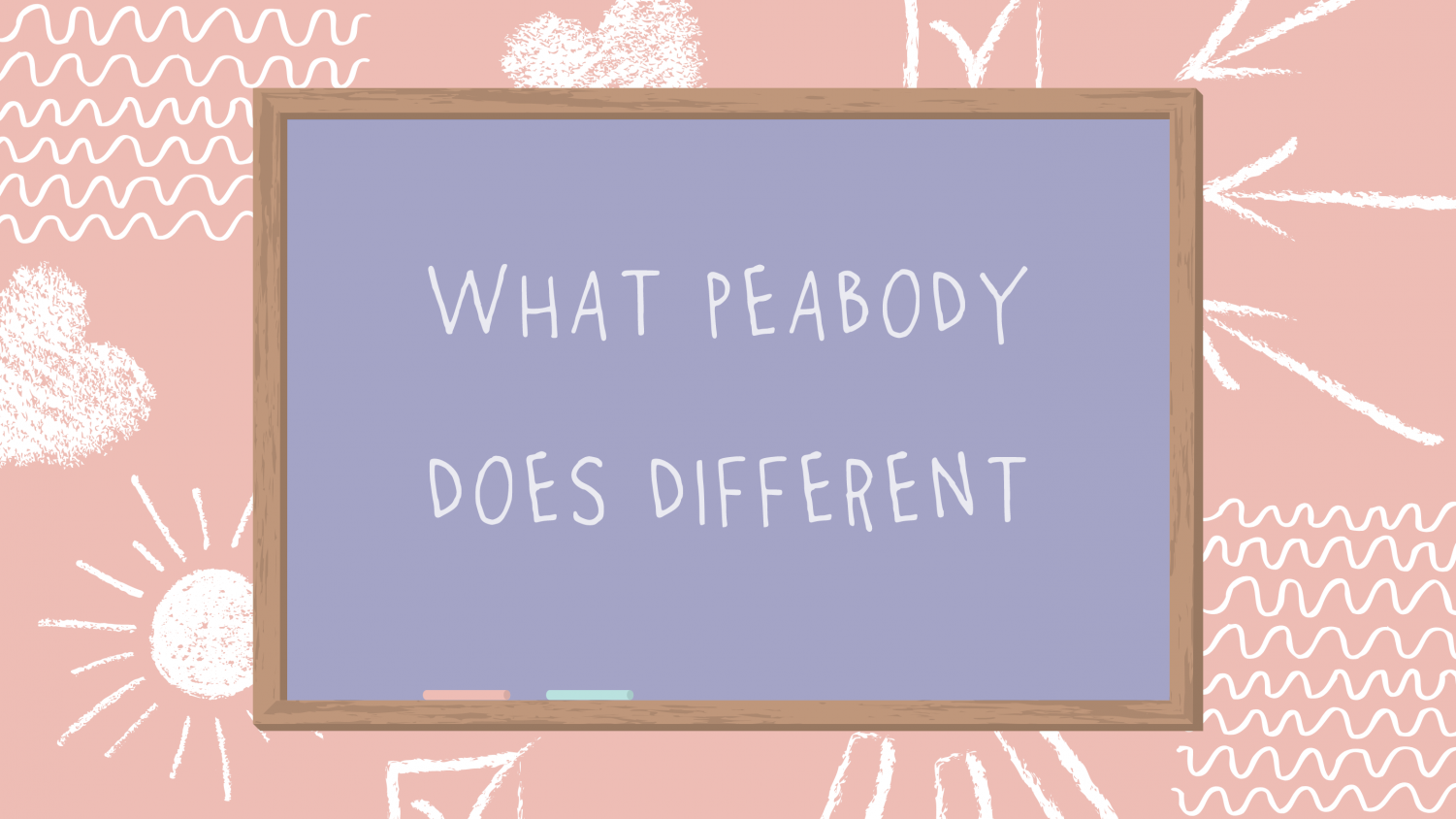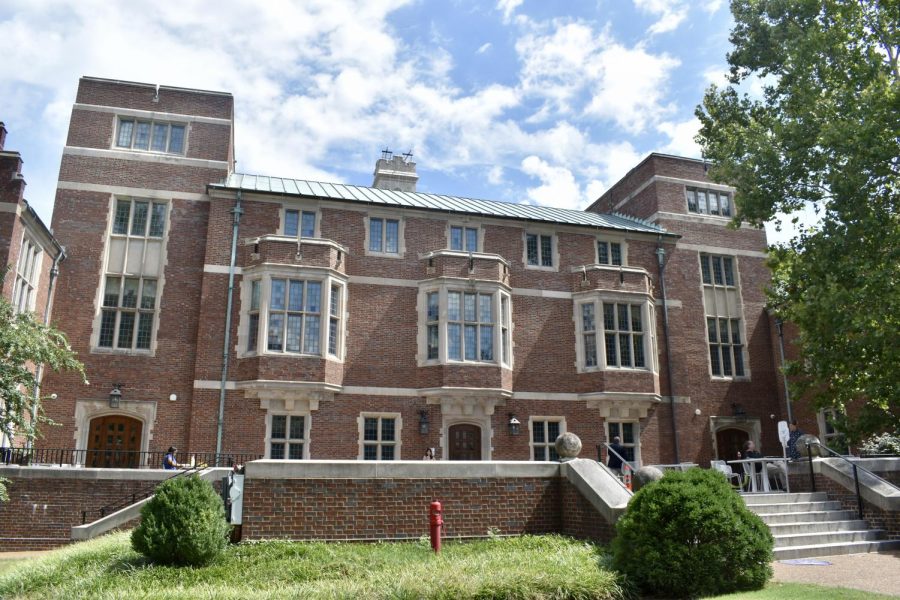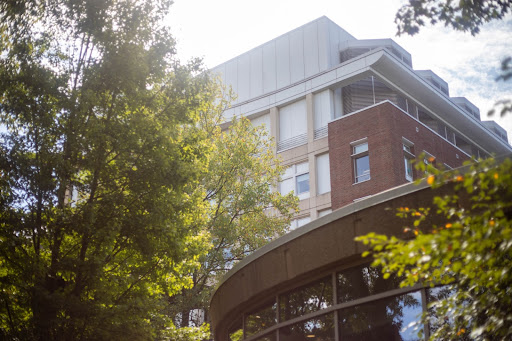Peabody College has always stood out to me. While in the process of making my initial college list, I typed “best colleges for education majors” into Google. I scrolled past a few advertisements and clicked a link that said, “2019 Best Colleges for Education Majors.” It led me to Niche, a really helpful site for finding a college fit—and at the top of their best education colleges was Vanderbilt University.
Had I ever heard of Vanderbilt before that search? No. Being from Massachusetts the only top 20 colleges that were discussed were Ivies. Because there are so many great schools so close to my area, not a lot of students look outside New England.
Junior Sean Collins had a similar experience while he was creating a list of colleges to look at,
“I asked Google what is the best college to attend to become a teacher and the internet responded Vanderbilt University’s Peabody College of Education.”
From the second I began reading about Peabody College at Vanderbilt, I was hooked, sure it’s where I belonged. The website was full of gorgeous pictures of campus, profiles of professors at the top of their fields and measures of success from graduates that reinforced their number one ranking on Niche. Everything I saw made my future-teacher heart happy and thus began my undying love for Peabody.
That infatuation has not dissipated in my two and a half years on campus. Like almost all Peabody students, I take classes across two schools, Peabody and the College of Arts and Sciences, so I have a few points of comparison. There are so many things, from creative assignments to unique spaces set up for community building, that make Peabody classes different from any other classes on campus.
For starters, a lot of the professors at Peabody have teaching experience in K-12 schools and bring first-hand knowledge of how we learn best and how to engage students in the classroom. Anita Wager, Professor and Associate Dean of Undergraduate Academic Affairs at Peabody, shared an administrative perspective on this comparison between Arts and Sciences and Peabody,
“In general, undergraduate teaching at Peabody is similar to Vanderbilt’s other schools as we are all concerned with the education of the whole person and in preparation for lifelong learning, Wager said. “We want our students to think critically and thrive in their careers.”
Yes, you absolutely have to expect differences in instruction and environment from schools with professors whose expertise varies from genetics to music theory to education. But Peabody classes just feel different.
Peabody classes tend to be less lecture-based and more discussion-driven. Even in classes that have a lecture component, there are class periods that are spent entirely in small groups. Even the physical spaces feel more conducive to group work and collaboration feels more intentional in my Peabody classes. Often the classroom is set up in groups and the groups are deliberately switched so people can work with a variety of their peers. This classroom design keeps me engaged and gives me a chance to hear my peers’ opinions and build off of their thinking. I feel less alone when I struggle with a topic or when I don’t understand the lecture. In some non-Peabody classes, I get the feeling that I am the only one that doesn’t understand a concept. Peabody’s classroom design makes you turn to your peers out of convenience of rather than always falling back on the professor.
Often, during class discussions, you’ll find that you have a lot in common with other students, be it similar goals to be educators or aspirations to change the educational system as a whole. Class discussions in Peabody classes often give you a chance to work with people you might not have met before that can change the way you think about a topic.
Sean Collins also told me about the differences he sees in the format of the classes in Peabody which are much different than his Arts and Sciences classes.
“Sometimes it can feel like night and day having to sit still and listen to a dry lecture for 75 minutes with a narrow goal of learning the information in one class then walking to Peabody to be an active participant in class and connecting educational scholarship to my future practices as a teacher,” Collins said.
I feel less pressure in Peabody classes. The courses offer a lot of flexibility, which has been especially helpful during the COVID-19 pandemic. On one of the very first days of classes, I had a cold and needed to get tested for COVID-19 and therefore couldn’t attend class in-person. Both of my Peabody professors followed up immediately helping me with what I’d missed; it was like I hadn’t missed class at all. This is in stark contrast to what I have heard about other professors outside of Peabody doing for sick students: oftentimes, nothing. Fear of missing content incentivizes sick students to come to class, endangering others. These professors help me place value on my mental health and wellbeing so I can be successful in the class despite outside circumstances.
Junior Sydney Takemoto, a cognitive studies major, also finds that her Peabody classes are flexible and less stressful.
“I’m able to get as much out of the content as in my other courses, but with less pressure,” Takemoto said.“Most professors really strive to create a relaxed learning environment that’s great for open discussion.”
One contributing factor to less stress is Peabody’s tendency to offer more flexible assessments, likely due to the backgrounds that a lot of professors have as teachers. Instead of two or three high-stakes exams throughout the semester, a lot of classes in Peabody have group projects, papers and creative projects where you choose the medium to demonstrate what you learned in the class. Students get more out of the class and retain that knowledge, rather than cramming for an exam just to forget it the next day. A lot of exams are designed to test the student’s ability to take a test rather than their knowledge of content. On the contrary, Peabody classes typically create space for students to showcase the content they learned in the best way that they can.
Some of the really interesting assessments that I have gotten to do rather than tests have been highlights of my college experience. For one Peabody education class, our assignment was to attend a school board meeting for the Nashville school district, but the catch was: we had to walk or take public transportation. We got to go in groups and find creative ways to get there and then we got to break down the whole experience and look at how it would feel to attend these meetings as a parent. These creative assignments also unite students, if you ask anyone who took “Society, School and the Teacher” they will know the ‘school board assignment.’
“Peabody courses are often more project-based, and emphasize discussion and collaboration over traditional papers and exams,” Takemoto said. “Many of the assignments are experiential, for instance participating in research, volunteering, or attending events in Nashville.”
Peabody is also unique in that it offers other methods of experiential learning, like travel classes during spring or winter breaks. Unlike Maymesters where students can face difficulties getting need-based aid because they have to apply separately for financial aid, Peabody’s classes offer abroad options during spring and winter breaks. In 2019, right before COVID-19 ended all non-essential travel, I was on a trip to Costa Rica with a Peabody early childhood education class, during which I got to tour Montessori schools and Reggio schools and spent a lot of time talking about all things education. I learned so much just talking and being around so many students who were also passionate about education. We got to tour Montessori schools and Reggio schools and spent a lot of time talking about all things education.
Overall I think that Peabody classes provide a community for me and many other students. It is not that I dislike the professors or the content of other classes in different schools, I simply feel more at home at Peabody. I feel more comfortable discussing things, more heard, more collaborative, more connected and I truly enjoy the sense of community that Peabody has established.
I offer all of my favorite things about Peabody as suggestions to other schools; ways to keep students engaged, ways to reduce test anxiety, ways to test knowledge rather than the students’ ability to take an exam. The best resources on campus for professors are the experts who study behavior and education. These Peabody professors know what works for teachers from all subject areas and also know how to make classrooms more equitable. Some other spaces on campus already follow these ideas that Peabody loves, and I hope that in coming years, more subject areas and schools will follow suit. Other colleges owe it to their students to prioritize the student experience and student well-being because it is just as important as content knowledge.
It is amazing to think that all I had to do was a search for, “best colleges for education majors,” to find my home.












